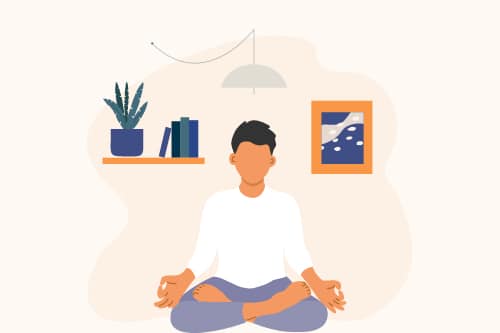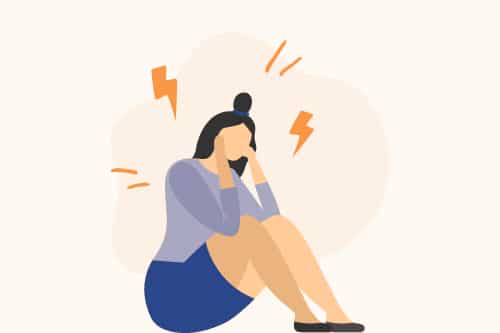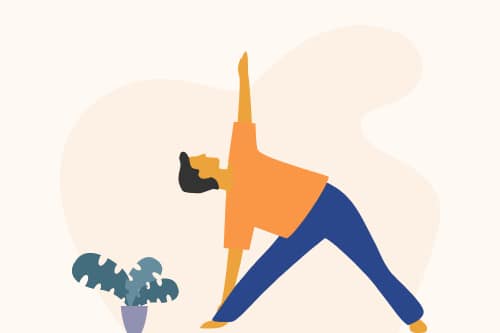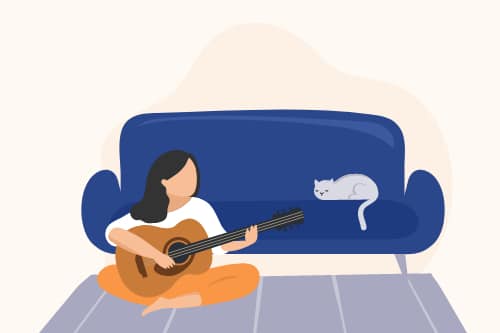Self-Care in the Second Wave of COVID-19
S Sharanya
July 3, 2025
S Sharanya
July 3, 2025
Have you been spending too much time on social media? Has your sleep cycle taken a hit once again? Have you been consulting a lot of news of late? Do you feel a sense of Déjà vu since the last lockdown? If you have said yes to at least one of these statements, then you are in the right space. Keep scrolling down to know more
Life has taken an unprecedented turn yet again, and this time more intensely than ever. There are bouts of hopelessness, worry, and anxiety everywhere. We are not going to tell you to be positive nor are we going to say things like “this too shall pass, Let’s be positive” rather we are going to help in establishing simple mental health routines in order to brave through these testing times one day at a time.
Most parts of the country are in lockdown, and frankly, we feel like we are playing catch up with time. The only difference between the previous lockdown and the current one is that we are trying to survive this one. So the question of taking care of ourselves and trying to stay productive is out of the window. Although we understand this, it is important to practise simple self-care routines to bring a sense of calm to this storm.

Self-care in simpler terms is nothing but taking care of ourselves, nourishing ourselves, and also to get in touch with reality on a daily basis. There is a common myth that self-care can be practised only by people who have enough time and money on their hands, self-care is everything but that.
When we take care of ourselves, especially during these trying times, we are not only enabling resilience, but we are also passing that on to our family and friends. Just like the virus, strength and endurance is also the much needed contagion. Self-care is often confused with self-improvement, self care is not “I am going to make myself better” rather it is an interesting way of adapting and nurturing oneself during unprecedented times.

To understand these barriers better, we need to first understand the signs of poor self-care.

We are seeing a spike in mental illnesses, namely Depression and Anxiety. According to a recent study by Johns Hopkins University, there has been a significant rise of 20% in mental health, especially due to the second wave. This may be due to panic and worry of the sheer uncertainty and open-endedness of the disease. Many of us have lost someone we love to the disease or we ourselves have contracted the disease that is spreading like a wildfire, and this state of unpreparedness directly affects our sympathetic nervous system that produces fight-or-flight response.

It is extremely important to maintain a well-balanced diet, especially at a time like this. Boosting our immunity is everything, and most of it comes from the food we eat. Ensure to eat on time and practice mindful eating habits, for eg: Not using your mobile phones or watching TV while you eat.
Self-care also means practicing good hygienic practices. Taking a shower and sanitizing properly is very important after you visit a supermarket, office, etc.
It’s vital to establish social connections, even if it is virtual. Set aside some time in your week and arrange fun game nights, movie nights, get-togethers with family and friends.
Engaging in simple breathing exercises and relaxation exercises are said to lower stress levels and anxiety pangs. So try to invest five minutes of your day to practice simple breathing exercises.
COVIDSOMNIA is real, and this affects our functioning ability, so get at least 7 to 8 hours of sleep. Studies have shown that limiting news intake and news hours significantly increase the quality of sleep.
Try reading a book or learn the skill you always wanted to. This releases happy hormones and we could all use a little happy hormone right now.
Most of us do not have a morning routine and directly get into chores and work-related tasks as soon as we wake up. This has also been the biggest problem in work from home scenarios. We don’t get a transitional routine to get into either work or home mode. Thus, setting a simple morning routine such as grounding your sense will help bring a sense of calmness and could set the tone for the rest of the day.
At some point in our life, we fall down and crumble, and it is completely normal to do so. Seeking help is not a sign of weakness, rather a sign of strength. Taking charge of things will always reduce the impact that it can create later in our life.
Following the above-mentioned tips can help you take one small step in the right direction. Things can be overwhelming and talking to a professional will help you ventilate and get the much-needed guidance and direction to help you stitch all the pieces together. Talk to us now to know more, until then stay healthy and safe.
Following the above mentioned tips can help you take one small step in the right direction. Things can be overwhelming and talking to a professional will help you ventilate and get the much needed guidance and direction to help you stitch all the pieces together. Talk to us now to know more, until then stay healthy and safe.
A. It is natural to think this way, however, if these thoughts are persistent and hampering your daily functioning, that’s when you need to take some action. If you see yourself feeling anxious most of your day, it’s important to write these thoughts down and see how much of these thoughts are under your control.
A. We are extremely sorry to hear this, we are praying for you and your family to brave through this. As hard as it sounds, all of us grieve differently. But it is important to make sense of what this grief means to you. Talk to our grief specialist to know more.
A. We have a plethora of skilled professionals with us, all you need to do is click the link in the beginning of this article and it will direct you to our professional, it’s that easy. We look forward to serving you in any way we can.
